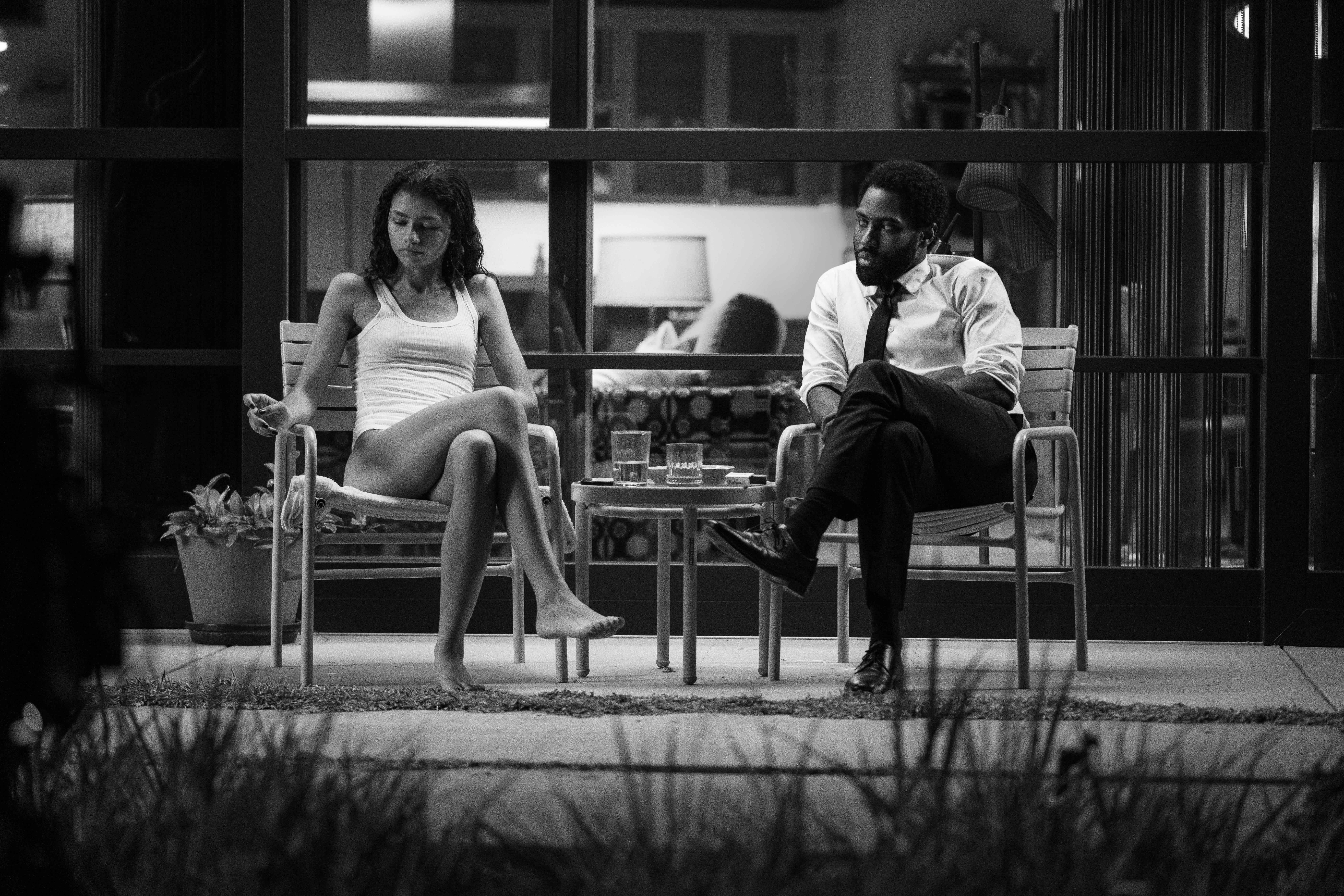Malcolm & Marie review: A requiem to a dying love that’s also a booby trap for film critics
The real ruse is that any critic too incensed by the film’s insults towards their profession risks looking as solipsistic as Malcolm himself
Your support helps us to tell the story
From reproductive rights to climate change to Big Tech, The Independent is on the ground when the story is developing. Whether it's investigating the financials of Elon Musk's pro-Trump PAC or producing our latest documentary, 'The A Word', which shines a light on the American women fighting for reproductive rights, we know how important it is to parse out the facts from the messaging.
At such a critical moment in US history, we need reporters on the ground. Your donation allows us to keep sending journalists to speak to both sides of the story.
The Independent is trusted by Americans across the entire political spectrum. And unlike many other quality news outlets, we choose not to lock Americans out of our reporting and analysis with paywalls. We believe quality journalism should be available to everyone, paid for by those who can afford it.
Your support makes all the difference.Dir: Sam Levinson. Starring: Zendaya, John David Washington. 15, 106 mins
Sam Levinson’s Malcolm & Marie feels like a booby trap for film critics. It follows a couple. One is an up-and-coming director named Malcolm (John David Washington), returning to a rented, modernist house in Malibu after the premiere of his new film. He’s high off the praise. The other, his date and long-time girlfriend Marie (Zendaya) is a lapsed actor whose experiences with drug addiction may have inspired this newly hailed masterwork.
Malcolm is a one-man fireworks show – all ego and youthful promise, funnelled into a stream of furious consciousness. The critics never liked his earlier work, so their fresh adulation has left him with a private bitterness. When he receives a (positive) review from the “white girl from the LA Times”, that bitterness explodes into delirium. She suggests one of his characters “brilliantly subverts the white-saviour trope” – he’s convinced that, if he were a white man, she would have said the opposite. Critics, in his eyes, read the identity of the filmmaker first, the content of their film second.
His monologue, delivered to no one in particular, is the bait. Levinson, who also wrote the film’s script, is white – he created HBO’s much-applauded Euphoria and his father, Barry, directed Rain Man. Does he have a right to speak through Black characters in such a way? Or does leveraging that criticism ignore a point Marie offers later on, that film is an entirely collaborative effort? After all, Zendaya, one of Euphoria’s main stars, was heavily involved in both the film’s conception and its writing. She’s one of its producers, alongside Washington.
Malcolm points out the coded, racial aspect to his film being labelled as “jazzy”, while an actual jazz score by Labrinth twinkles away in the background. Cinematographer Marcell Rév’s use of sumptuous black and white, all shot on 35mm film, begs direct comparison with classics such as John Cassavetes’s Faces or Mike Nichols’s Who’s Afraid of Virginia Woolf?. Malcolm & Marie teasingly invites categorisation as a high-concept prank pulled off by a creative team bored in lockdown (the film was shot last year with a crew of 22). But the real ruse is that any critic too incensed by the film’s insults risks looking as solipsistic as Malcolm himself. It’s so devilishly provocative that it’s impressive.

As Marie notes, his failings as a partner and a filmmaker are one and the same. Malcolm & Marie isn’t just a meditation on modern filmmaking – it’s a spiky, luxuriant portrait of a relationship that can no longer sustain itself, where one partner is a suffocating egotist and the other has too many wounds left unhealed. The catalyst for a marathon argument is an act of carelessness: Malcolm forgot to thank Marie during his speech. She thinks it’s because he can’t bear to share the spotlight with someone whose voice is so present in the film.
The thrill of Malcolm & Marie is in how the characters are given space to be fair and ugly in equal measure – sometimes absurd, in the way such self-consuming arguments tend to be. She calls him “an emotional terrorist” with a straight face; he descends into hysteria when he can’t find his wallet. The sudden, humbled silence that follows suggests it was in his pocket all along.
Washington and Zendaya treat these emotional cycles – the silence, the screaming, the tears, the sex – as a kind of toxic tango. He’s the slick movie star we saw in Tenet, shimmying around the living room to James Brown’s “Down and Out in New York City”, but with an impatient child screaming out for attention underneath. Zendaya, her voice mellow and detached, trades in quiet devastations: a bitter laugh here, a crumpled brow there. There’s a specific way she throws her head back, chin raised high, that makes it feel like Marie is in a constant battle to preserve her pride.
Early on in the film, she warns: “I promise you, nothing productive is going to be said tonight.” Malcolm & Marie offers the distinct pleasure of revelling in someone else’s pain and passions, all hot air and heady fatalism. It’s the requiem of a love at death’s door.
Join our commenting forum
Join thought-provoking conversations, follow other Independent readers and see their replies
0Comments